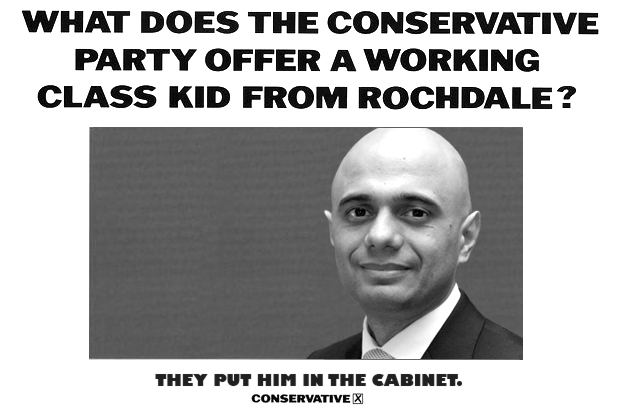When Maria Miller was Culture Secretary, her aides kindly invited me to a consultation to give my thoughts about government’s involvement in press regulation. I declined, saying that there should be no involvement at all so there was not much to discuss.
It seems that her successor agrees. In an interview with The Times, his first since being appointed to the Cabinet, Sajid Javid has drawn a line under this sorry and deeply illiberal chapter in our country’s history. This is his first serious move since taking the job as Culture, Media & Sport Secretary, and it’s very welcome. He tells The Times:
‘The press is hugely important and freedom of speech is a cornerstone of our democracy. I’m proud of the press . . . Notwithstanding the fact that any industry has its bad apples, I think our press is the best in the world. It is fearless without favour.’
The Press Complaints Commission, he told The Times, ‘wasn’t really working and something had to be changed’. But something has changed: the new regulatory, IPSO, will start within a few weeks. And Javid doesn’t seem to have a problem with that:
‘It is now a decision for the press what they want to do next. I don’t see any further role for government in this but the most important thing has got to be that the press is respected for the role they’ve played. Our country has benefited hugely over the ages from having a press that is vibrant and fearless.’
He also adds that the Daily Telegraph was quite right to pursue his predecessor over over her expenses.
‘I think one of the important roles of the press is to hold public officials to account and Maria herself recognised that she made mistakes . . . As long as they are presenting facts I think that is perfectly healthy.’
This is a welcome, em, clarification of the government’s position. The last update we had was my interview with the Prime Minister just before Christmas where he was pressing for the newspapers to do something: to swear fealty to ask ‘recognition’ from the Royal Charter set up by the politicians.
‘I believe there’s a great opportunity here to put this difficult and painful issue to bed. If the press set up their regulator I hope, in time, they will make that regulator compliant with – will be able to then seek recognition under – the charter recognition body. If that then happens, we’ll have in place a system that I think will settle this issue because we would have achieved what Leveson wanted which is independent self-regulation by the press, but not marking its own homework, having itself checked, and only having the body checked as it were by the charter.’
To Javid, it seems, the issue has already been ‘put to bed’. The government set up a club, looking for members. No one has joined. Oliver Letwin’s brain fart has finally cleared the room – and the idea of a Royal Charter has been put to one side. And, most importantly, the ancient freedom of the British press has been protected.
Oh, and a note to Liberal Democrats still wanting the state to oversee press regulation: have a look at guy in the picture at the very top of this blog. That is what a true liberal looks like.







Comments